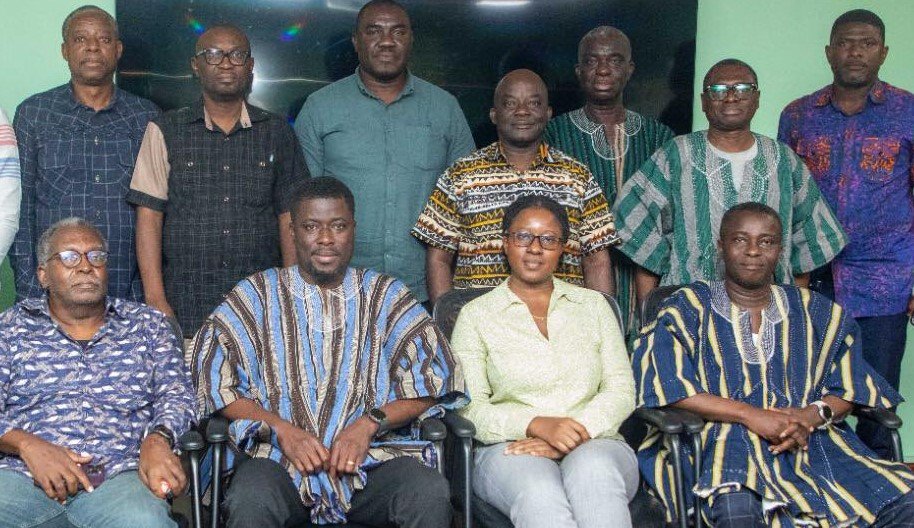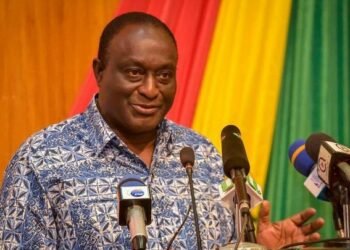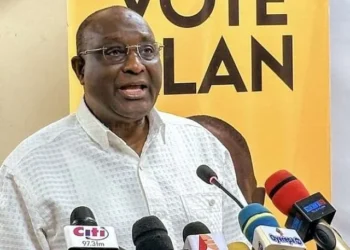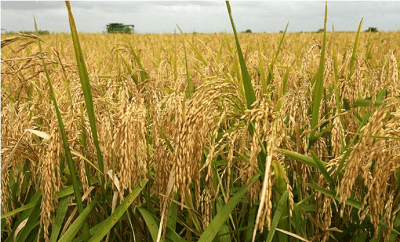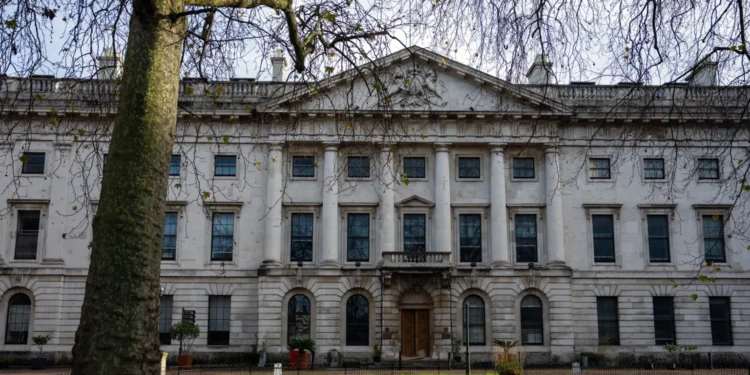The 24-Hour Economy (24H+) Secretariat has initiated a new phase of institutional collaboration with the Forestry Commission (FC) following a high-level engagement aimed at identifying synergies to advance Ghana’s sustainable and inclusive economic transformation agenda.
A two-member delegation from the Secretariat, led by Mr. Kyeretwie Opoku, Coordinator, and Ms. Manuella Sekyi, Climate Lead and Programmes Officer, paid a working visit to the Forestry Commission in Accra.
The team was warmly received by Mr. Elikem Kotoko, Deputy Chief Executive of the Commission, and members of the Executive Management Team (EMT).
Welcoming the delegation, Mr. Kotoko described the visit as an important step toward strengthening institutional cooperation between the Forestry Commission and the 24H+ Secretariat.
He noted that such engagements offer valuable opportunities for mutual learning, knowledge sharing, and joint planning toward Ghana’s development priorities.
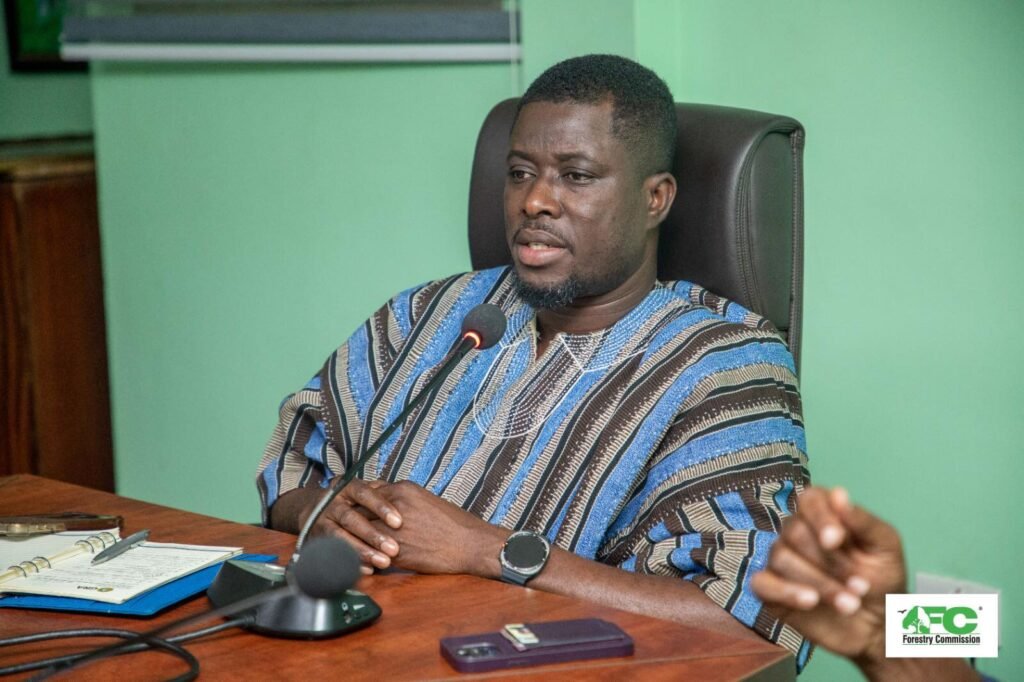
He added that the Forestry Commission stands ready to support the Secretariat’s efforts to tackle Ghana’s economic challenges through innovative and practical solutions that align with environmental sustainability.
Productive, Industrialized and Job-Creating Economy
In her presentation, Ms. Manuella Sekyi provided an overview of the 24H+ Programme, emphasizing its central objective of transforming Ghana into a productive, industrialized, and job-creating economy.
She explained that the 24H+ initiative, which forms part of President John Dramani Mahama’s broader Reset Agenda, is built on the principles of inclusivity, innovation, and sustainability.
Ms. Sekyi further outlined several flagship projects under the programme, including the Volta Economic Corridor, Legon Pharmaceutical Innovation Park, Agroecological Parks (Agbleduwo), Kumasi Machinery and Technology Park, and the National Creators’ Academy.
According to her, these projects are designed to boost local production capacity, create sustainable employment, and foster self-reliance across the economy.
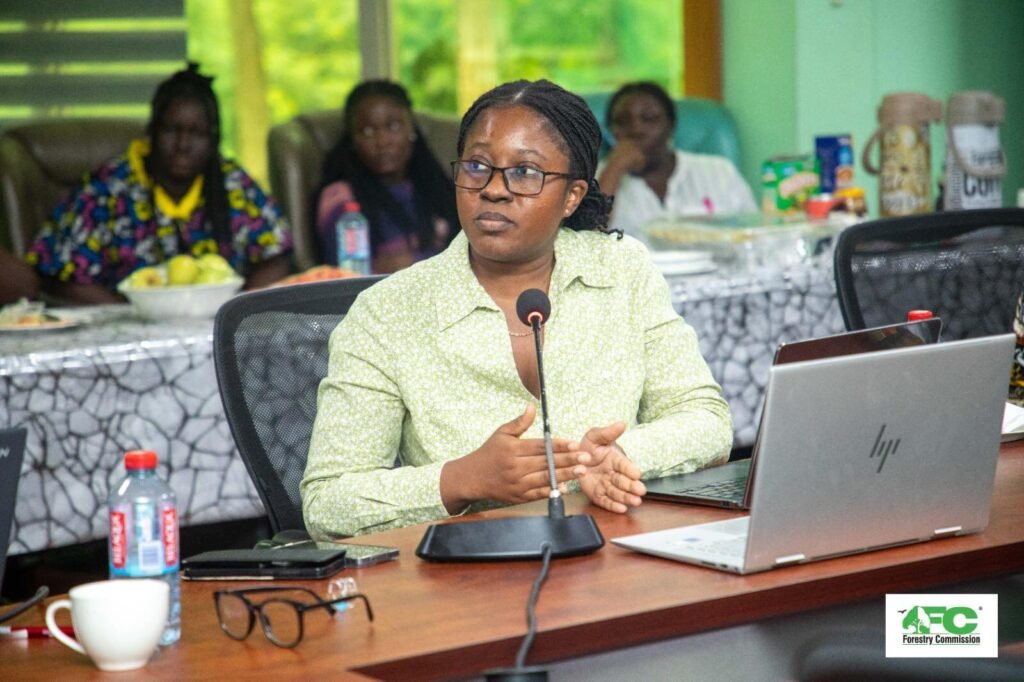
She underscored the importance of integrating climate-resilient strategies into these initiatives, noting that collaboration with the Forestry Commission would strengthen Ghana’s transition to a green and inclusive economy.
Forestry Commission’s Projects
Representing the Forestry Commission, Dr. Joseph Yaw Appiah-Gyapong, Director of Climate Change, delivered a comprehensive presentation on the Commission’s achievements and ongoing projects.
He highlighted the Commission’s strong record in implementing forest-based climate initiatives, particularly under the REDD+ Programme, which focuses on reducing emissions from deforestation and forest degradation.
Dr. Appiah-Gyapong cited Ghana’s recent success in securing $21.7 million in results-based carbon finance under the Cocoa Forest REDD+ Programme as evidence of the country’s leadership in climate action.
He emphasized the Commission’s commitment to sustainable forest management, biodiversity conservation, and carbon stock enhancement, which he described as critical pillars for building a low-carbon and resilient economy.
Dr. Appiah-Gyapong expressed optimism that the Commission’s partnering with the 24H+ Secretariat will allow it to integrate these environmental strategies into the national economic transformation agenda.
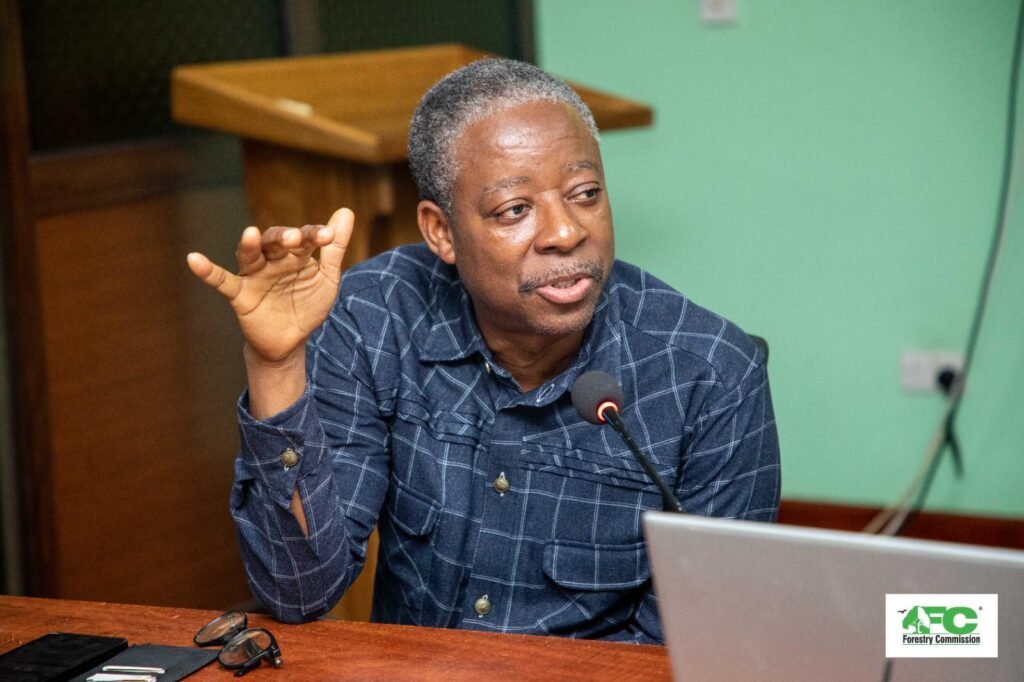
The meeting concluded with an interactive session, during which representatives from both institutions exchanged ideas on potential joint initiatives, including green industrialization, carbon market development, and community-based reforestation.
Both sides agreed to designate a liaison officer to facilitate continuous communication and coordination of activities. The engagement ended on a cordial note, symbolized by a group photograph that captured the spirit of partnership and shared commitment to Ghana’s sustainable future.
Mr. Opoku expressed appreciation to the Forestry Commission for its warm reception and reaffirmed the Secretariat’s readiness to collaborate closely with the Commission in promoting environmentally sound economic growth.
The visit marks the beginning of what both institutions described as a promising partnership, aligning national economic transformation goals with environmental stewardship and climate resilience.
READ ALSO: Ghana Poised for 20% of West Africa’s $80 Billion Oil Market



